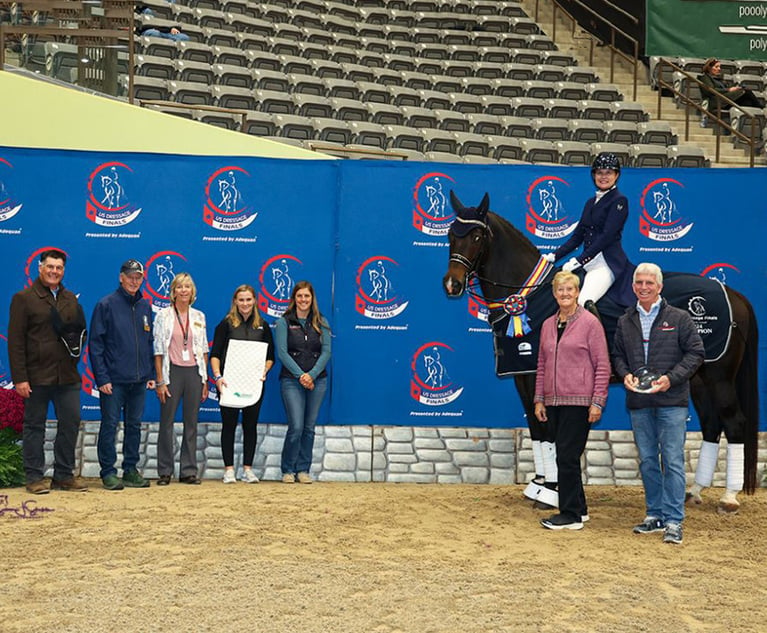Lawyer Faces Disbarment After Failed SCOTUS Bid in 'Hollywood South' Case
Michael Arata's 2015 federal conviction for a tax fraud scheme over misuse of Louisiana film credits led to a failed Supreme Court appeal involving multiple Big Law firms.
December 11, 2019 at 02:30 PM
4 minute read
 New Orleans. (Photo: Shutterstock)
New Orleans. (Photo: Shutterstock)
Disciplinary officials have recommended disbarment with a chance for reinstatement in the case of an attorney from a prominent New Orleans legal family who was convicted of tax fraud in connection with the city's efforts to become a film industry hub.
In May the U.S. Supreme Court declined to hear an appeal in the so-called "Hollywood South" case, despite amicus backing for the lawyer and his movie producer co-defendant that pulled in support from Sidley Austin, William & Connolly and other Big Law firms.
Michael Arata was found guilty four years ago alongside Hollywood producer Peter Hoffman and Hoffman's wife Susan of improperly using $1 million in state tax credits for renovating an old French Quarter mansion into a film production facility.
Arata has a background as a stage and film actor, and has also worked in film and theater production in addition to his legal career. His father, Blake Arata, was a prominent oil and gas lawyer who served as New Orleans' city attorney in the 1970s.
In electing to recommend disbarment over permanent disbarment in its Dec. 5 findings and recommendations, the Louisiana disciplinary board pointed to the absence of prior disciplinary actions and reports of misconduct against Michael Arata. The state's Office of Disciplinary Counsel had sought a permanent disbarment.
"Applying the [Louisiana] Supreme Court guidelines, there does not appear to be grounds to recommend permanent disbarment," the board concluded.
If affirmed by the Louisiana Supreme Court, the board's recommendation will allow Arata to apply for readmission to the bar in the future.
The Hoffmans and Arata were convicted in 2015 for misusing a Louisiana tax credit law intended to bring more movie productions into the state. The French Quarter facility was completed and opened, and some of the tax credits were found to be legitimate. The three defendants had argued that they submitted credit documents in good faith under a tax credit law that some observers, at the time, considered ambiguous and complex.
The trial judge threw out most of the counts against the defendants, but he denied their motion for a judgment of acquittal. He sentenced the three to probation in a dramatic downward departure from sentencing guidelines. He noted he was constrained by precedent in the U.S. Court of Appeals for the Fifth Circuit that rejects the so-called equipoise rule, where a person's guilt and innocence are equal.
Last year the Fifth Circuit reinstated most of the counts and remanded the case for resentencing. That prompted the defendants' unsuccessful Supreme Court appeal, in which they were represented by Jeffrey L. Fisher of O'Melveny & Myers.
Three amicus briefs from highly pedigreed advocates—one from more than a dozen former federal trial judges, represented by Sidley Austin partner Christopher Egleson; another from nine criminal law professors, represented by Timothy O'Toole, a partner at Miller & Chevalier; and the third from the National Association of Criminal Defense Lawyers, represented by Williams & Connolly partner Amy Saharia—were not enough to persuade the justices to hear the case. They denied the defendants' cert petition in May, prompting the Louisiana Attorney Disciplinary Board to turn to the question of disbarment.
Arata could not immediately be reached for comment. He and the Hoffmans are now set to be resentenced Jan. 8.
Information on the identity of Arata's counsel for the disciplinary proceeding was not available. His criminal attorney, William Gibbens of Schonekas, Evans, McGoey & McEachin, did not immediately respond to a request for comment Wednesday.
[Hat tip: Mike Frisch of the Legal Profession Blog.]
Read More
Ex-Federal Judges Back Film Producers in Supreme Court Tax Conviction Fight
This content has been archived. It is available through our partners, LexisNexis® and Bloomberg Law.
To view this content, please continue to their sites.
Not a Lexis Subscriber?
Subscribe Now
Not a Bloomberg Law Subscriber?
Subscribe Now
NOT FOR REPRINT
© 2025 ALM Global, LLC, All Rights Reserved. Request academic re-use from www.copyright.com. All other uses, submit a request to [email protected]. For more information visit Asset & Logo Licensing.
You Might Like
View All
Eagles or Chiefs? At These Law Firms, Super Bowl Sunday Gets Complicated
3 minute read
Wachtell Helps Miami Dolphins Secure One of NFL’s First Private Equity Deals
3 minute read
'It Refreshes Me': King & Spalding Privacy Leader Doubles as Equestrian Champ
5 minute readLaw Firms Mentioned
Trending Stories
- 1ACC CLO Survey Waves Warning Flags for Boards
- 2States Accuse Trump of Thwarting Court's Funding Restoration Order
- 3Microsoft Becomes Latest Tech Company to Face Claims of Stealing Marketing Commissions From Influencers
- 4Coral Gables Attorney Busted for Stalking Lawyer
- 5Trump's DOJ Delays Releasing Jan. 6 FBI Agents List Under Consent Order
Who Got The Work
J. Brugh Lower of Gibbons has entered an appearance for industrial equipment supplier Devco Corporation in a pending trademark infringement lawsuit. The suit, accusing the defendant of selling knock-off Graco products, was filed Dec. 18 in New Jersey District Court by Rivkin Radler on behalf of Graco Inc. and Graco Minnesota. The case, assigned to U.S. District Judge Zahid N. Quraishi, is 3:24-cv-11294, Graco Inc. et al v. Devco Corporation.
Who Got The Work
Rebecca Maller-Stein and Kent A. Yalowitz of Arnold & Porter Kaye Scholer have entered their appearances for Hanaco Venture Capital and its executives, Lior Prosor and David Frankel, in a pending securities lawsuit. The action, filed on Dec. 24 in New York Southern District Court by Zell, Aron & Co. on behalf of Goldeneye Advisors, accuses the defendants of negligently and fraudulently managing the plaintiff's $1 million investment. The case, assigned to U.S. District Judge Vernon S. Broderick, is 1:24-cv-09918, Goldeneye Advisors, LLC v. Hanaco Venture Capital, Ltd. et al.
Who Got The Work
Attorneys from A&O Shearman has stepped in as defense counsel for Toronto-Dominion Bank and other defendants in a pending securities class action. The suit, filed Dec. 11 in New York Southern District Court by Bleichmar Fonti & Auld, accuses the defendants of concealing the bank's 'pervasive' deficiencies in regards to its compliance with the Bank Secrecy Act and the quality of its anti-money laundering controls. The case, assigned to U.S. District Judge Arun Subramanian, is 1:24-cv-09445, Gonzalez v. The Toronto-Dominion Bank et al.
Who Got The Work
Crown Castle International, a Pennsylvania company providing shared communications infrastructure, has turned to Luke D. Wolf of Gordon Rees Scully Mansukhani to fend off a pending breach-of-contract lawsuit. The court action, filed Nov. 25 in Michigan Eastern District Court by Hooper Hathaway PC on behalf of The Town Residences LLC, accuses Crown Castle of failing to transfer approximately $30,000 in utility payments from T-Mobile in breach of a roof-top lease and assignment agreement. The case, assigned to U.S. District Judge Susan K. Declercq, is 2:24-cv-13131, The Town Residences LLC v. T-Mobile US, Inc. et al.
Who Got The Work
Wilfred P. Coronato and Daniel M. Schwartz of McCarter & English have stepped in as defense counsel to Electrolux Home Products Inc. in a pending product liability lawsuit. The court action, filed Nov. 26 in New York Eastern District Court by Poulos Lopiccolo PC and Nagel Rice LLP on behalf of David Stern, alleges that the defendant's refrigerators’ drawers and shelving repeatedly break and fall apart within months after purchase. The case, assigned to U.S. District Judge Joan M. Azrack, is 2:24-cv-08204, Stern v. Electrolux Home Products, Inc.
Featured Firms
Law Offices of Gary Martin Hays & Associates, P.C.
(470) 294-1674
Law Offices of Mark E. Salomone
(857) 444-6468
Smith & Hassler
(713) 739-1250











